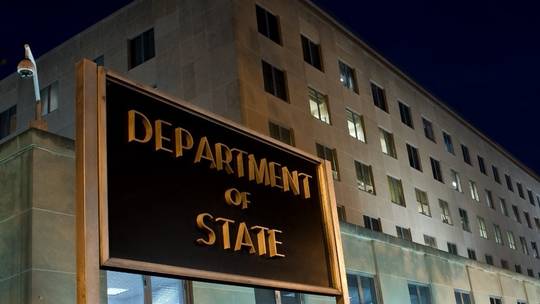The US State Department, both directly and through third-party organizations, pressed Twitter to censor American users for their non-existent connections to Russia, China, and Hindu nationalism, according to internal documents.
Published by journalist Matt Taibbi on Thursday, the latest ‘Twitter Files’ reveal that the company’s former trust and safety chief, Yoel Roth, was approached in 2021 and given a list of 40,000 accounts suspected of engaging in “inauthentic behavior” in support of India’s Bharatiya Janata Party.
The list was provided by the ‘Digital Forensics Research Lab’ at the Atlantic Council, a think tank funded by the US State Department’s ‘Global Engagement Center’ (GEC), as well as a host of NATO governments and weapons manufacturers.
According to the files, Roth investigated the list and found that “virtually all appear to be real people” rather than Indian bots, while Taibbi contacted several and learned that they were “ordinary Americans” with no connection whatsoever to Indian politics.
Created in the final year of the Obama administration, the GEC is a State Department entity that works with multiple US intelligence agencies to “counter foreign disinformation.” It is forbidden from operating within the United States, and recently had to cut its ties with a George Soros-backed NGO that was using its funding to target American conservative news sites.
While the list of supposed Hindu nationalists was given to Twitter via the Atlantic Council, the GEC directly passed other lists to the social media platform, including 500 accounts that were allegedly spreading Iranian “disinformation,” and 5,500 “Chinese accounts” engaged in “state-backed coordinated manipulation,” despite the fact that this latter list included multiple Western government accounts and at least three CNN employees.
Roth described the Chinese list as “a total crock,” while fellow employee Aaron Rodericks said it provided “more entertainment value than anything.”
The GEC and its organizations tangentially connected to the State Department – such as the infamous ‘Alliance for Securing Democracy’ that published the ‘Hamilton68’ dashboard of “Russian bots” – had long pressed Twitter to crack down on allegedly Kremlin-connected accounts, but Roth told staff that it was impossible to detect “Russian fingerprints” on any of the accounts.
Instead, accounts that retweeted “news sources linked to Russia” were considered Kremlin-sponsored. One list handed to Twitter by the GEC considered membership in France’s anti-government ‘Yellow Vests’ movement as “being Russia-aligned.”
While Twitter’s executives may have been skeptical of the GEC’s ‘blacklists’, the US media was not. Emails show that multiple news outlets and agencies – including the Associated Press – would receive reports from the organization, and then press Twitter to take action and ban the listed accounts.
“Reauthorization for GEC’s funding is up for a vote this year,” Taibbi wrote on Twitter on Thursday. “Can we at least stop paying to blacklist ourselves?”
Rt
Tags:Twitter




